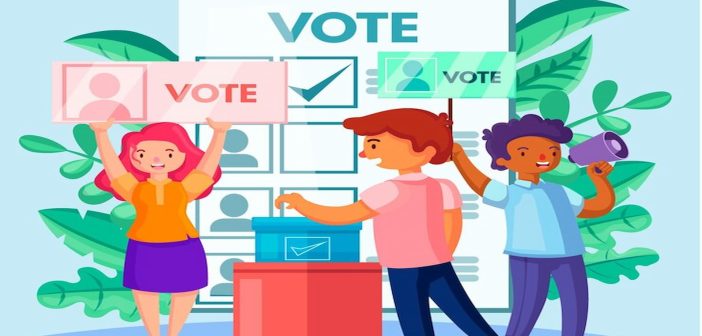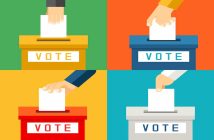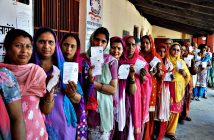Dive into the 2024 Dadar & Nagar Haveli elections with a detailed look at the candidates, voter dynamics, and political implications. Discover what’s shaping the future of this region!
The 2024 elections in Dadra and Nagar Haveli are set to be a crucial event, with several significant candidates vying for the parliamentary seat. This post provides an overview of the main candidates from various political parties, explores factors influencing the outcomes, and examines the implications for local, state, and national politics.
Main Candidates
Rakesh Patel (Bharatiya Janata Party – BJP)
Rakesh Patel, a seasoned politician, represents the Bharatiya Janata Party. Known for his development-oriented approach, he has focused on infrastructure and economic growth in the region. His previous term saw significant investments in local industries, enhancing job opportunities.
Anjali Desai (Indian National Congress – INC)
Anjali Desai is the face of the Indian National Congress in this election. With a strong background in social work, she emphasizes healthcare, education, and women’s rights. Her campaign promises substantial improvements in public health facilities and education infrastructure.
Vikram Rathod (Aam Aadmi Party – AAP)
Vikram Rathod, representing the Aam Aadmi Party, is known for his grassroots activism. He advocates for transparency, anti-corruption measures, and improved public services. His approach resonates with voters seeking a break from traditional party politics.
Priya Naik (Nationalist Congress Party – NCP)
Priya Naik, a young and dynamic candidate from the NCP, focuses on youth empowerment and sustainable development. Her policies include initiatives for skill development, environmental conservation, and promoting local arts and crafts.
General Election to Parliamentary Constituencies: Trends & Results June-2024
Parliamentary Constituency 2 – Dadar & Nagar Haveli (Dadra & Nagar Haveli and Daman & Diu)
Won
121074 (+ 57584)
DELKAR KALABEN MOHANBHAI
Bharatiya Janata Party
Lost
63490 ( -57584)
AJIT RAMJIBHAI MAHALA
Indian National Congress
Lost
10197 ( -110877)
KURADA DEEPAKBHAI
Bharat Adivasi Party
Lost
3152 ( -117922)
BORSA SANDIPBHAI S
Bahujan Samaj Party
Lost
2524 ( -118550)
SHAILESHBHAI VARTHA
Independent
5151 ( -115923)
NOTA
None of the Above
लोक सभा निर्वाचन क्षेत्रों के लिए आम चुनाव: रुझान और परिणाम जून-2024
लोक सभा क्षेत्र 2 – (दादरा और नगर हवेली एवं दमन और दीव)
विजयी
121074 (+ 57584)
DELKAR KALABEN MOHANBHAI
भारतीय जनता पार्टी
हारा
63490 ( -57584)
AJIT RAMJIBHAI MAHALA
इंडियन नेशनल काँग्रेस
हारा
10197 ( -110877)
कुराड़ा दीपकभाई
भारत आदिवासी पार्टी
हारा
3152 ( -117922)
BORSA SANDIPBHAI S
बहुजन समाज पार्टी
हारा
2524 ( -118550)
SHAILESHBHAI VARTHA
निर्दलीय
5151 ( -115923)
NOTA
इनमें से कोई नहीं
General Election to Parliamentary Constituencies: Trends & Results June-2024
Parliamentary Constituency 2 – Dadar & Nagar Haveli (Dadra & Nagar Haveli and Daman & Diu)
| S.N. | Candidate | Party | EVM Votes | Postal Votes | Total Votes | % of Votes |
|---|---|---|---|---|---|---|
| 1 | DELKAR KALABEN MOHANBHAI | Bharatiya Janata Party | 120833 | 241 | 121074 | 58.89 |
| 2 | AJIT RAMJIBHAI MAHALA | Indian National Congress | 63423 | 67 | 63490 | 30.88 |
| 3 | KURADA DEEPAKBHAI | Bharat Adivasi Party | 10188 | 9 | 10197 | 4.96 |
| 4 | BORSA SANDIPBHAI S | Bahujan Samaj Party | 3147 | 5 | 3152 | 1.53 |
| 5 | SHAILESHBHAI VARTHA | Independent | 2522 | 2 | 2524 | 1.23 |
| 6 | NOTA | None of the Above | 5144 | 7 | 5151 | 2.51 |
| Total | 205257 | 331 | 205588 |
लोक सभा निर्वाचन क्षेत्रों के लिए आम चुनाव: रुझान और परिणाम जून-2024
लोक सभा क्षेत्र 2 – (दादरा और नगर हवेली एवं दमन और दीव)
| क्रम संख्या. | अभ्यर्थी | दल का नाम | ई.वी.एम. मत | डाक द्वारा मत | कुल मत | % मत |
|---|---|---|---|---|---|---|
| 1 | DELKAR KALABEN MOHANBHAI | भारतीय जनता पार्टी | 120833 | 241 | 121074 | 58.89 |
| 2 | AJIT RAMJIBHAI MAHALA | इंडियन नेशनल काँग्रेस | 63423 | 67 | 63490 | 30.88 |
| 3 | कुराड़ा दीपकभाई | भारत आदिवासी पार्टी | 10188 | 9 | 10197 | 4.96 |
| 4 | BORSA SANDIPBHAI S | बहुजन समाज पार्टी | 3147 | 5 | 3152 | 1.53 |
| 5 | SHAILESHBHAI VARTHA | निर्दलीय | 2522 | 2 | 2524 | 1.23 |
| 6 | NOTA | इनमें से कोई नहीं | 5144 | 7 | 5151 | 2.51 |
| कुल | 205257 | 331 | 205588 |
Factors Influencing the Outcomes
Voter Turnout
Voter turnout plays a crucial role in determining election outcomes. In the past, higher turnout has generally favored opposition parties, indicating a desire for change among the electorate. Efforts to mobilize voters, especially the youth and women, could significantly impact the results.
Demographic Shifts
Dadra and Nagar Haveli have seen demographic changes, including an influx of migrants and shifts in the age profile of voters. These changes can influence voting patterns, with newer residents potentially favoring candidates addressing their immediate concerns.
Implications for Local, State, and National Politics
Local Politics
The election outcome will shape the future of local governance, impacting policies related to infrastructure, health, education, and economic development. A victory for any candidate will determine the region’s developmental priorities for the next five years.
State Politics
As part of the Union Territory of Dadra and Nagar Haveli and Daman and Diu, the election results will influence the political landscape of the combined territories. The alignment of the winning candidate with the ruling party at the state level could facilitate smoother implementation of policies.
National Politics
At the national level, the election is significant for party dynamics in the Lok Sabha. A seat win here could bolster the respective party’s strength in Parliament, influencing national policies and the balance of power.
Trends And Unexpected Outcomes
This election has highlighted some intriguing trends, including the rise of newer parties and independent candidates gaining traction. Unexpected outcomes might arise from strategic alliances or shifts in voter loyalty, reflecting the evolving political landscape.
Conclusion
The 2024 elections in Dadra and Nagar Haveli are a microcosm of India’s dynamic political environment. The results will not only shape the region’s future but also have broader implications for state and national politics. We invite readers to share their insights and reflections on these significant elections.



